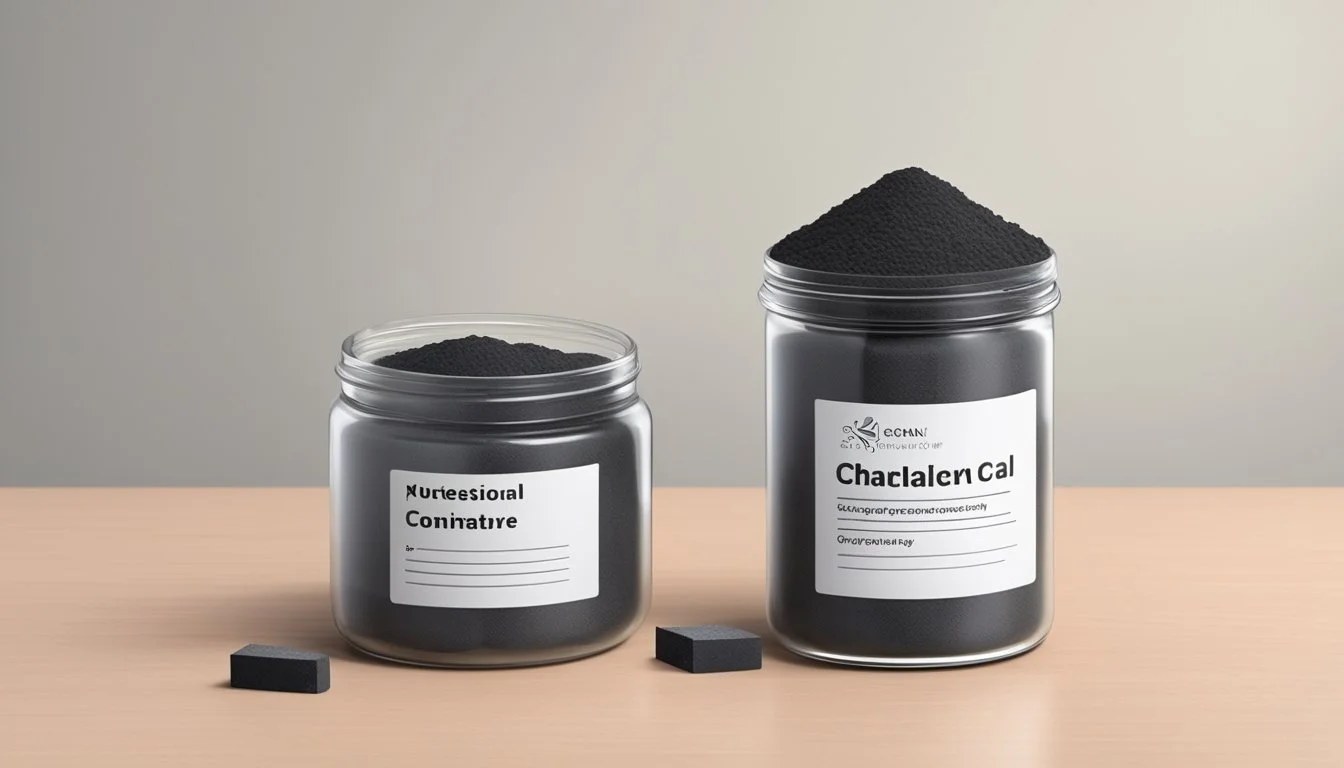Can I Consume Activated Charcoal While Pregnant?
Understanding the Risks and Guidelines
When it comes to managing health during pregnancy, many women are considering natural and alternative remedies. Activated charcoal, with its well-known toxin-absorbing properties, is one such substance that garners attention. It's traditionally used in emergency settings to manage overdoses and poisonings effectively. However, its use by pregnant women for other health-related reasons, such as to relieve nausea or occasional constipation, is a subject of inquiry and cautious consideration.
Medical professionals exercise caution when addressing the consumption of activated charcoal during pregnancy. While there is an understanding that activated charcoal can bind to toxins and help remove them from the body, there is also a concern that it may inadvertently bind to essential nutrients, leading to nutrient absorption issues. It is generally advised that activated charcoal should not be taken frequently or without clear medical guidance during pregnancy. In addition, potential side effects, including constipation and black stools, are noteworthy and may affect maternal comfort and health.
Before introducing activated charcoal or any supplement during pregnancy, consulting healthcare providers is crucial. They can provide personalized advice and ensure that the health of the mother and the developing fetus is safeguarded. Pregnant individuals should consider potential risks and benefits, as well as alternative and safer options available to them, under the guidance of their healthcare provider.
Overview of Activated Charcoal
Activated charcoal, often referred to as activated carbon, is a form of processed charcoal that has been treated to have a large surface area. This fine, black powder is derived from carbonaceous materials such as coal, wood, coconut shells, or peat. The processing involves heating the source material in the presence of a gas that triggers the charcoal to develop internal pores, greatly increasing its ability to absorb substances.
Typically used to absorb toxins and chemicals, the substance is employed both medically and in home applications. Its toxin-absorbing properties stem from adsorption, a process by which the vast surface area of activated charcoal acts somewhat like a sponge, binding to certain poisons and preventing their absorption by the body.
In commercial settings, activated charcoal is present in a variety of products, ranging from filters for water purification to detoxifying skin products. It's also available in a powdered form that can be added to foods or drinks, although healthcare professionals advise caution due to potential risks and side effects, such as constipation and the possibility of hindering nutrient absorption.
The sources of activated charcoal like coconut shells are considered environmentally friendly and renewable. Coconut shell-based charcoal, in particular, is prized for its extremely large surface area and high porosity, making it very effective at trapping unwanted substances, thus it is often used in medical settings to treat certain types of poisoning or overdose. As with any supplement, individuals should seek medical advice before incorporating activated charcoal into their diet, especially during pregnancy.
Safety of Activated Charcoal in Pregnancy
During pregnancy, the safety of supplements and medications is of paramount concern. Activated charcoal, commonly used for detoxification and treatment of poisoning, warrants caution when used by expectant mothers.
Safety Concerns: The primary safety considerations revolve around activated charcoal's potential to cause constipation and bowel blockages. These effects can elevate risks during pregnancy, a time when digestive issues are already common.
Nutrient Absorption: There is a concern that activated charcoal might interfere with the absorption of vital nutrients necessary for fetal development.
Medical Supervision: Due to these concerns, it is advised that any use of activated charcoal during pregnancy should be under strict medical supervision.
Pregnant women are recommended to be particularly cautious about using activated charcoal because of potential risks. While small doses may be deemed safe, determining the appropriateness of activated charcoal involves a careful assessment of benefits versus risks.
Dosage and Administration: In non-pregnant adults, the dosage for poisoning treatment is generally 50 to 100 grams given once. However, due to altered physiological states during pregnancy, dosing may have to be adapted.
It is crucial that expectant mothers discuss with their healthcare provider before taking activated charcoal. The healthcare provider can asses individual cases and provide guidance on the proper dosage, if any, ensuring the safety of both the mother and the developing fetus.
Health Benefits and Uses
Activated charcoal is used for various health benefits due to its properties of adsorption. It's important for consumers, especially pregnant women, to understand its uses and the extent of its health benefits which are often supported by scientific research.
Digestive Relief
Activated charcoal may alleviate digestive issues such as gas, bloating, and upset stomach. It works by binding to the byproducts causing discomfort, a benefit that pregnant women might find particularly helpful due to common digestive complaints during pregnancy.
Toxin and Poison Treatment
Charcoal is traditionally used in emergency settings for poison treatment, including drug overdoses. The substance adsorbs toxins, although its use in poisoning must be promptly conducted under medical supervision. Evidence indicates it's effective in binding to certain toxins, which are then excreted from the body.
Cholesterol Management
Some research suggests activated charcoal can help manage cholesterol levels. It may bind with cholesterol and cholesterol-containing bile acids in the gut, preventing the body from absorbing them, potentially helping to lower high cholesterol.
Skin and Oral Care
Topically, activated charcoal can attract dirt and toxins, making it beneficial for skin and oral care — hence its inclusion in some skincare products and toothpaste. It may help clean pores and has been noted for teeth whitening benefits.
Hangover and Detoxification
Despite mixed evidence, some believe in charcoal's ability to support detoxification. It's often marketed for hangover relief after alcohol consumption by purportedly binding with alcohol byproducts, though its efficacy for hangovers isn't strongly supported by scientific evidence.
Nutritional Support
While not a source of nutrients, activated charcoal is sometimes found in dietary supplements. It's reasoned to aid in detoxification, with some users claiming it helps with overall wellness. However, it's crucial to consider that it can interfere with nutrient absorption and the effectiveness of other supplements or medications.
Side Effects and Risks of Activated Charcoal
When considering the consumption of activated charcoal, one needs to be aware of its potential side effects and risks, particularly in the context of pregnancy. This section examines the gastrointestinal implications associated with activated charcoal use.
Gastrointestinal Issues
Activated charcoal can lead to several gastrointestinal issues, primarily when used without medical supervision. Constipation is a notable side effect since activated charcoal can solidify waste in the intestines. This can be of particular concern for pregnant women who may already be prone to constipation due to hormonal changes. Moreover, with prolonged use or ingestion in high quantities, there is a risk of intestinal blockages. Such blockages not only cause discomfort but can also necessitate medical intervention. To minimize gastrointestinal risks, it is imperative that activated charcoal be used judiciously and under the guidance of a healthcare professional.
Interactions With Medications and Nutrients
When considering the use of activated charcoal during pregnancy, one must be aware of its potential interactions with various medications and nutrients. Activated charcoal is known to bind to chemicals, which includes medications and supplements, potentially reducing their effectiveness.
Medications: It's essential to note that activated charcoal can significantly reduce the absorption of certain drugs if taken simultaneously. This interaction is particularly crucial in the case of prescription medications critical for the health of the mother or the developing fetus.
Supplements: Similar to medications, activated charcoal may also affect the absorption of vitamins and dietary supplements. Pregnant individuals often require a consistent intake of prenatal vitamins to support fetal development, and the use of activated charcoal could interfere with the intended nutrient supply.
Drug Interactions: The extent of drug interactions can vary:
Major Interactions: Considered significant and may necessitate medical attention.
Moderate Interactions: May affect the drug efficacy and require dosage adjustments.
Minor Interactions: Typically less impactful but should still be monitored.
Practical Guidance:
Timing: If activated charcoal and certain medications or supplements must be consumed on the same day, it is generally advised to space their intake several hours apart.
Medical Consultation: One should consult a healthcare provider before adding activated charcoal to their routine, especially if they are taking other medications or supplements during pregnancy.
Recommended Dosage and Administration
When considering the use of activated charcoal during pregnancy, experts typically recommend caution. Activated Charcoal is usually administered in cases of poisoning, with dosages varying by age. For adults and teenagers, the conventional one-time dosage may range from 50 to 100 grams. Children from 1 to 12 years old might receive 25 to 50 grams, and its use for children less than 1 year old is not recommended.
For pregnant individuals, the guidance on dosage is less clear due to the lack of sufficient data on safety during pregnancy. Some health practitioners might advise small doses if the benefits outweigh potential risks, but precise guidelines for this demographic are not well-established. Women should consult their healthcare providers for personalized advice and should not self-administer activated charcoal.
The administration of activated charcoal is typically via an oral suspension. One should be aware that the process of absorbing toxins in the gastrointestinal tract can interfere with nutrient absorption and lead to digestive issues like constipation, which may be of particular concern in pregnancy.
In summary, the table below indicates the general dosage recommendations for activated charcoal in cases of poisoning, not necessarily for pregnant individuals:
Age Group Dosage (one-time) Adults and Teenagers 50 to 100 grams Children (1-12 years) 25 to 50 grams Infants (<1 year) Not recommended
Pregnant women contemplating the use of activated charcoal should seek medical advice tailored to their specific health situation and should always prioritize medically approved treatments and dosages.








